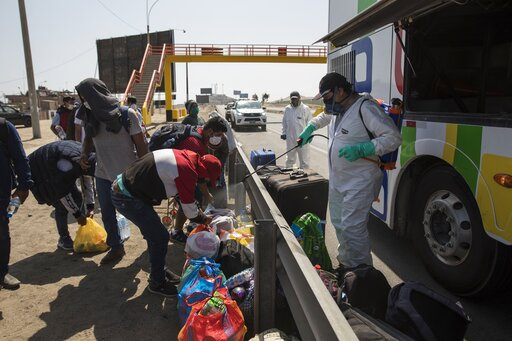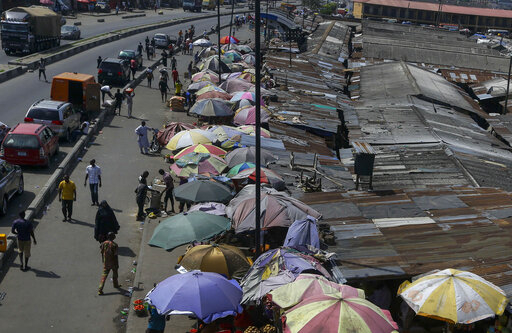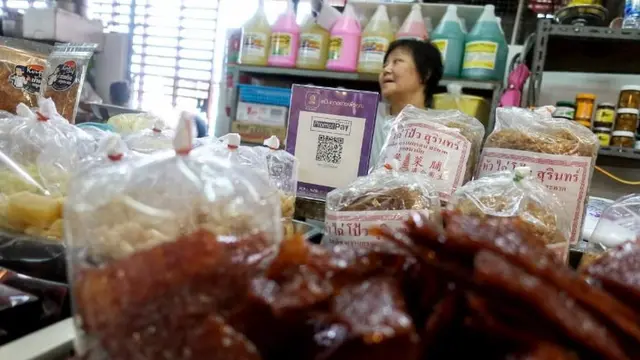
For many developing and emerging economies, the unprecedented upheaval caused by the coronavirus pandemic has been the most stark in the informal sector.
This sector, also known as the shadow or underground economy because it is untaxed, accounts for a staggering proportion of jobs in these nations.
In India, the figure is estimated at 90 percent, in Africa it is thought to be 80 percent, and 55 percent in Latin America. What characterizes the workers in this sector is that they don't have employment contracts and protections or safety nets and are especially vulnerable at any time.
In the age of coronavirus, this could be devastating. Furthermore in developing economies, 92 percent of women workers are informally employed, according to the International Labor Organization (ILO).
Street vending is perhaps the most recognizable category of the underground economy but it covers many areas as diverse as fishing and sex work.
In its newest update on the impact of the pandemic issued on Wednesday, the ILO said 1.6 billion of the 2 billion workers in the informal economy globally "have suffered massive damage to their capacity to earn a living" because countries around the world have come to a near standstill.
It says the workers have seen a 60 percent decline in income during the first month of the crisis, with the steepest drop of 80 percent felt in Africa and the Americas.
Big GDP contributor
This is not only harmful to the pockets of the mostly poor people who work in this sector but disproportionately so to the overall health of developing nations.

People shop at a roadside market with few customers in Lagos, Nigeria, on April 13, 2020. With some governments saying they're unable to offer direct support, the fate of Africa's large informal sector as a result of the new coronavirus could be a powerful example of what experts predict will be unprecedented damage to economies in the developing world. /AP
According to the International Monetary Fund, the regions with the highest share of informality between 2010 and 2017 were sub-Saharan Africa and Latin America both at 34 percent of gross domestic product. This compares with 9 percent of GDP for North America.
"With further increases in income inequality among workers, an even greater proportion of informal economy workers will be left behind," the ILO warned in its update.
There is a recognition that post-COVID-19 economic revitalization will need to extend to the sector in which many find it difficult to access government aid, even if it is available, because they are unregistered or unbanked.
The Economic Times of India reported this week that the country's government is working on an action plan to reskill unemployed informal sector and migrant workers once the national lockdown is lifted.
"Providing support to small businesses in the informal sector should be a priority for all economies aiming at lessening any adverse effect of the pandemic," Nigerian Vice President Yemi Osinbajo said on Wednesday.
Policy response required
But why does the informal sector have such a disproportionate influence among developing nations? One reason, according to the IMF senior economist Thomas Alexander, is that as countries develop, it is easier for workers to transition to the formal sector. "At the same time, it provides employment and income to people who would otherwise not find employment, or it supplements their income from employment in the formal, regulated sector," he says.
The pain of lost earnings among workers in the shadow economy is being felt worldwide. The decline after a month is estimated at 70 percent in Europe and Central Asia and 21.6 percent in Asia and the Pacific.
These workers often have limited access to health care services and no income replacement in case of sickness or lockdown. Many of them aren't able to work remotely from home.
The ILO called for urgent and significant policy responses to protect both enterprises, particularly smaller businesses, and workers, especially those operating in the informal economy, as the pandemic and the jobs crisis evolve.
"For millions of workers, no income means no food, no security and no future," Guy Ryder, the director-general of the UN agency, said.
(Cover image: Day laborers and informal workers who usually eke out a living in Peru's capital Lima are sprayed with disinfectant as they prepare to board a bus provided by the government to take them home to the provinces, April 21, 2020. /AP)
 简体中文
简体中文





